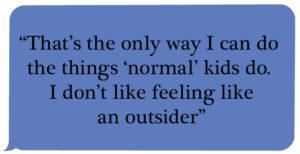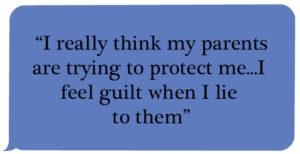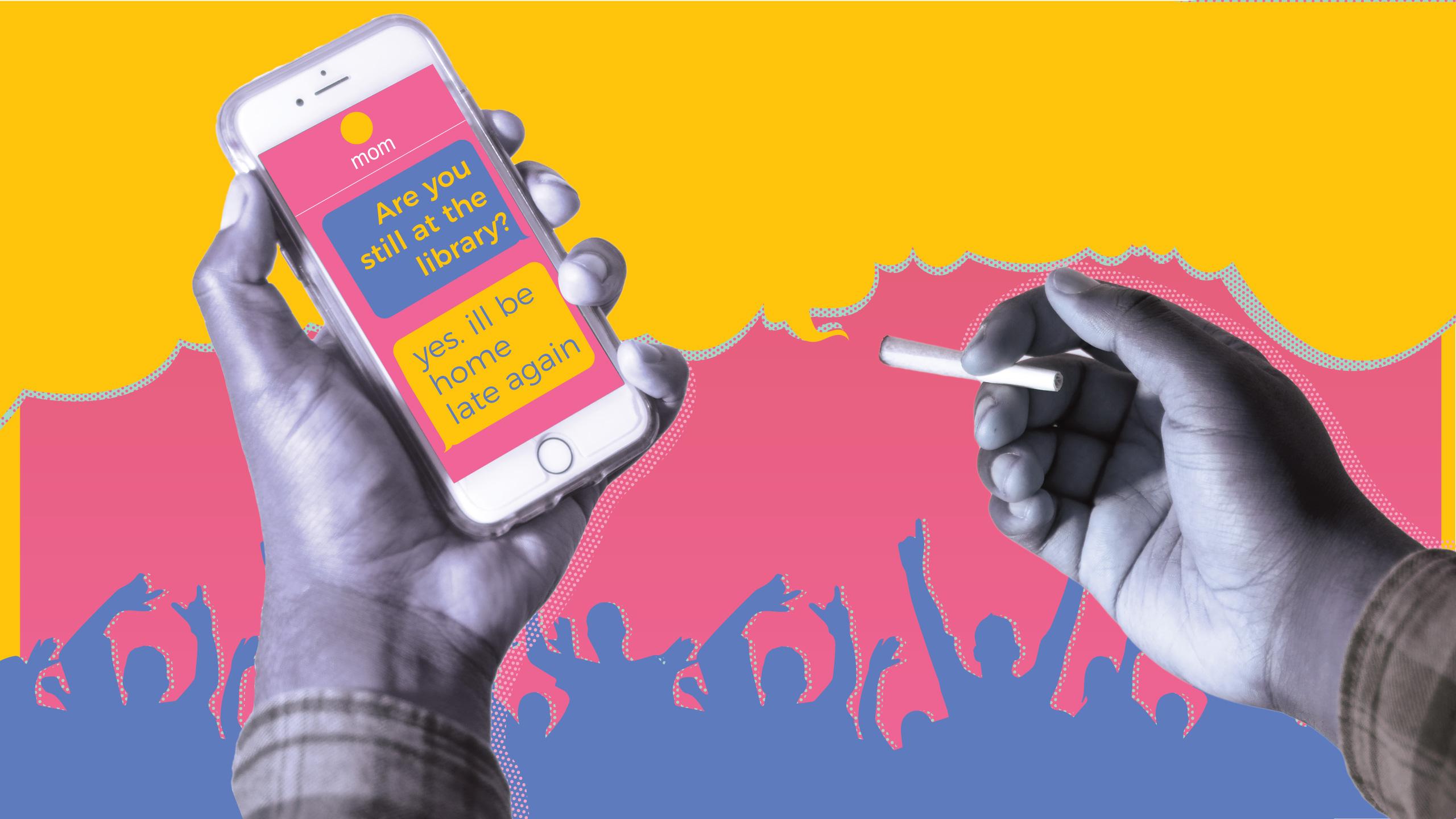By Simran Singh
It’s Saturday evening, and Aisha Bari*, fourth-year geography student at York University, is getting ready to go to her friend’s birthday party at Orchid Night Club. Like most clubs on a Saturday night in Toronto, the place is packed, bottles are being popped and the smell of weed fills the room. Of course, that’s not something Bari would ever disclose to her parents. So she comes up with a detailed plan: “Operation Mom And Dad Can’t Find Out!”—something she’s executed successfully many times before.
Bari first tells her mom that she’s going to her friend’s birthday party to watch movies (which was mentioned at least seven to 14 business days in advance, of course).
But when it comes down to asking her dad, Bari knows she has to come up with something more elaborate. She coordinates with her sister’s plans so it will look like she’s going to the gym, then going to her cousin’s house. On the night of the party, she packs her duffle bag with her dress, makeup and her friend’s gift. Instead of taking an Uber from home, she walks over to Donlands Station to catch her Uber, just in case the local neighbourhood aunties see her or suspect anything.
It’s the end of the night and Bari is almost home free. She takes an Uber to meet her sister, changes in the car, chews a whole lot of gum and gets her stories straight, one for Mom and another for Dad. Bari’s mom is slightly more lenient when it comes to her going out, but her dad isn’t quite as understanding. This 007-style operation definitely wasn’t her first, and it wasn’t going to be her last.
Bari said she’ll continue to lie to her parents for as long as she lives with them, because being able to go out past 11:30 p.m. without her parents knowing allows her to relax and enjoy her night.
“That’s the only way I can do the things ‘normal’ kids do. I don’t like feeling like an outsider,” said Bari.

For many students, going off to university means meeting loads of new people, starting new friendships and romantic relationships and hitting nightclubs and house parties. But some students—especially racialized ones—find themselves leading a double life. They have to hide where they go, what they do and who they see from their parents everyday. It’s like being Hannah Montana, but without the fabulous pop star life and a much earlier curfew.
Seema Abad*, a third-year journalism student, said that her Muslim background disagrees with certain practices such as dating, drinking alchohol and drugs. Abaad said that she not only hides where she’s going from her parents, but also the fact that she has male friends.
“I have to introduce my guy friends [to my parents] as my friend’s brother or as a friend of a friend, but not as my friend at all,” said Abaad.
Abaad is a bisexual woman who doesn’t practice Islam outside of home, and she explained the consequences of her sexuality and Muslim background would include being sent back to Pakistan to be removed of her sins and be reformed to religous practices again. That would mean being covered from head to toe, praying and reading the Quran everyday and dedicating her life to God, Abaad said.
Other consequences would include being shunned from the Muslim community or even being sent to a reformation camp led by the family’s religious leader.
“I’m more agnostic, but my entire family is Muslim, so it’s very hard to go behind their back…considering they do everything thinking ‘What would God want from me, and how can I remain the most Halal?’” said Abaad.
She also said that lying to her parents means that she can’t tell them where she’s actually going on a Friday night. To her parents, she’s studying late on campus. Instead she’s really at a house party, maybe making out with some guy in the bathroom.
Abaad went on to explain that she also has to hide her prescribed medication for anxiety and Attention Deficit Hyperactivity Disorder. Her parents have criticized the idea of using medication to manage her mental health issues, because they relate mental health to someone being “crazy.”

Religion has a big effect on young adults as they become exposed to other worldly views. When going off to university or college, students feel the need to take more control of their life as they enter adulthood. It becomes natural to develop your own thoughts and opinions, even when they don’t match the views of their parents and other family members.
According to qualifying psychotherapist Aashna Gulati, who specializes in culturally sensitive therapy, many young adults distance themselves from their religion because it was forced upon them growing up. Gulati said in the West, individuality is encouraged and valued much more than collective cultures—those that put the needs of a group or community over the individual.
Gulati says that collective cultures have a tendency to always keep in mind “what other people will think.” For collective families, what one person does becomes a reflection of their entire family, or even their community at large.
According to a 2018 study from Pew Research Center, “young adults are, on the whole, less likely than their elders to say they attend religious services every week.” The centre also said that lower attendance amongst young adults is especially pervasive in North and Latin America, where both the U.S. and Canada show substantial gaps. Globally, young adults are less likely to attend prayer services in 53 out of 102 countries surveyed.
Second-year hospitality and tourism management student, Ian Hernández* said he chooses not to practice Judaism when he’s not at home, something his parents are unaware of since they believe in being fully committed to the religion.
“Since I started university, I became less religious. My parents are very gravitated towards our religion more than our ethnicity, and I’m the other way around,” he said.
Being that Hernández is Latino and Jewish, he explained how hard it was to connect with his faith growing up. He had never met anyone with the same cultural and religious mix as him. Hernández said that because of the colour of his skin and the fact that he doesn’t “look Jewish” he found it difficult to connect to his faith, as he never felt accepted by the community in the first place.
Although Hernández practices Jewish rituals at home out of respect for his parents, the second he leaves the house, that all goes out the window. His parents would not be happy if they knew about his decision to eat non-kosher, avoid religious practices, such as going to prayer on campus, and the fact that he keeps a friend circle that relates more to his Latino roots than his Jewish roots.

Building new friendships and romantic relationships are often a part of the post-secondary experience. Some might even find life-long partners during this time. But for some students, dating has its own challenges aside from deciding where to go on a Saturday night or arguing about what to watch on Netflix.
For many racialized students, dating means hiding your relationship from your family, for reasons like different race, religion, sexual preference or not being allowed to date at all. Gulati explained that one of the primary reasons why young adults, especially racialized ones, feel the need to hide important parts of their life from their parents is out of fear of disappointment or punishment.
Third-year journalism student Amna Tahir*, who is also of a Muslim background, said she hid her previous relationship from her family for two years. Although her ex-boyfriend was also Muslim, their relationship was not something either of them could share with their parents. Arranged marriages were traditonally the only way they could experience a romantic relationship.
“For [my parents’] generation, they got arranged with the person in their relationship where they didn’t really get to choose [who they were going to be with],” Tahir said.
Staying out late was also an issue for Tahir to explain to her family. During her first year at Ryerson, one of her classes required her to stay late. And although the late hours of her work were not in her control, she was still scolded for being out past sunset and was told that she was “out of control,” and that her behaviour was unacceptable for a Muslim girl.
Regardless of however many restrictions parents and families may place on their kids, it’s no secret that students have found ways to work around those rules.
According to Tahir, it’s all about keeping her stories straight. She said that she has to keep track of what she’s said and to whom, since her stories depend on which family member she’s telling. For Hernández, a lesson he learned was to never bring weed home when his mom found the stash in his room while he was on vacation. For Abbad, it’s telling her parents that she’s staying over at her girl friend’s place, when really she’s sleeping over at her guy friend’s.
And despite students getting older and transitioning to becoming young adults, freedom isn’t necessarily granted.
Gulati says she thinks that any parent that limits their child’s freedom might be to fulfill their own sense of control or purpose in life. Parents may see their life being of worth as long as they are helping or caring for their children, and they might be reluctant to let go.
Despite all the differences kids may have with their parents, students like Bari also empathize with parents and understand why they may set certain boundaries for them.
“I really think my parents are just trying to protect me. [They] do a lot for me and I feel guilt when I lie to them,” said Bari. “It’s nice to know someone cares that much about me.
*Names have been changed for anonymity purposes.










Leave a Reply